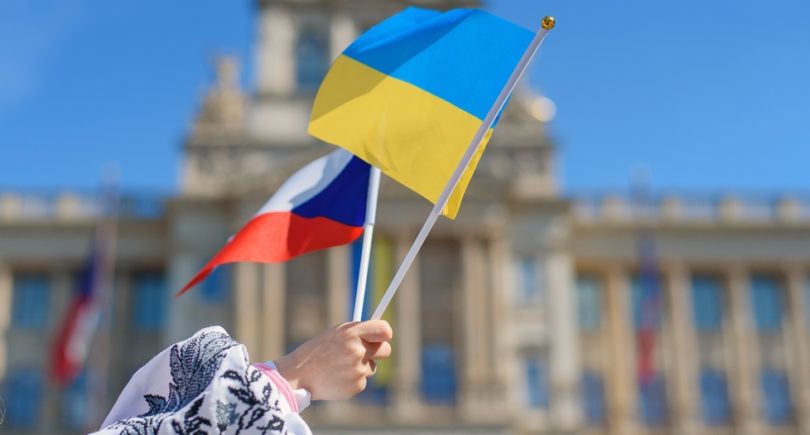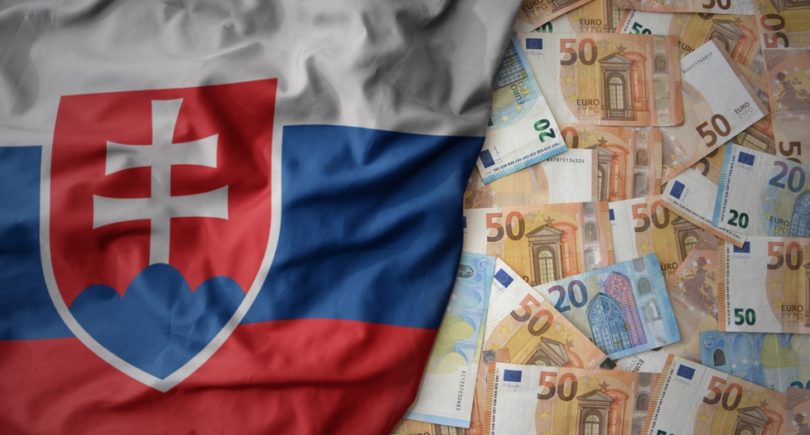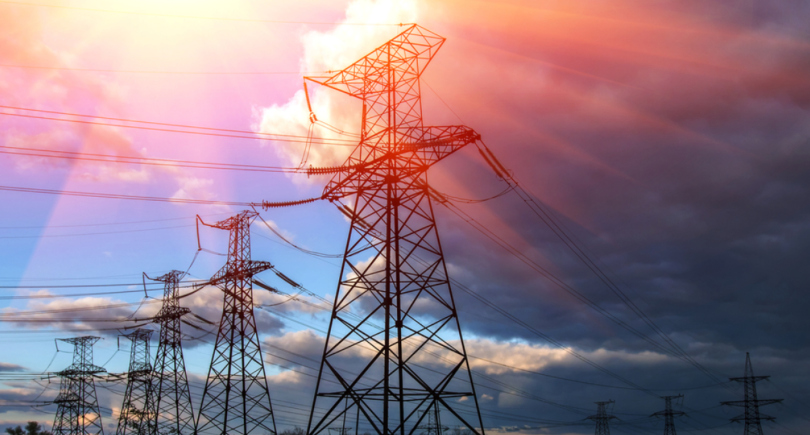
Posts Global Market Europe 2119 05 September 2023
Opening own production in one of the EU countries is the right step to ensure access to the European market
Even before the war, Ukrainian businessmen actively invested in European countries, and with the beginning of the full-scale invasion and receiving the status of a candidate for EU membership, they continued to do so. According to the data of the Polish Economic Institute (PIE), 3,600 new companies with Ukrainian capital and 10,200 private entrepreneurs appeared in their country alone in 9 months of 2022. And Poland is no exception. Other EU countries also felt an increase in the presence of Ukrainian capital.
There are several reasons why our entrepreneurs decide to develop their business in EU countries. First of all, it allows to avoid military risks, from which there is no hiding in any corner of our country. And secondly, it makes it easier to enter the European market, which is important for our producers in the context of Ukraine’s future accession to the EU. Who is already conquering the markets of European countries and what Ukrainian business can offer the EU — GMK Center found out.
Previously, GMK Center already found out how during the war Ukrainian business became the main investor in our economy, investing billions in the modernization of its facilities and supporting the domestic GDP. And we also investigated which global industrial giants risk investing in Ukraine in the midst of hostilities and what can motivate them to invest on a larger scale. In the third article of this investment cycle, GMK Center tells which Ukrainian entrepreneurs are already conquering the markets of European countries and what our business can offer the EU.
Engineering
For a long time, the products of enterprises in this branch of the economy were oriented to the CIS markets, and Ukrainians were assured that Europe was not interested in them. But this myth can be destroyed by a group «ТАS» of Serhiy Tihipko, who bought 40% of the shares of the Austrian company TransAnt, which produces modular freight railcars. According to experts’ estimates, the shares bought by the Tihipko’s company may be worth about $20 million.
TransAnt is a kind of railcar-building startup that does not have its own production. It offers a new type of freight railcars that can be quickly transformed from one type to another. For example, from a semi-railcar for transporting coal to a grain railcar or a platform for transporting containers.
TransAnt modular railcars will be sold to European railway operators, and Ukrainian Dniprovagonmash, which also belongs to the TAS group, will produce components for them.
Thanks to the agreement with the Austrian company Dniprovagonmash, for the first time it will gain access to the European market, as well as access to new technologies.
Steel industry
A well-known steel giant Metinvest Group before the war owned plants in Europe. In particular, its Promet Steel plant with a capacity of 500,000 tons of rolled steel per year is located in Bulgaria, Metinvest Trametal and Ferriera Valsider with a total capacity of 1.2 million tons per year are located in Italy. In addition, not in the EU, but in Great Britain, the group owns the Spartan UK plant, which can produce 200,000 tons of rolled steel per year.
The Group considered Bulgaria and Italy for the construction of a new plant. But as Yuriy Ryzhenkov, the general director of the company, noted in a recent interview, they stopped at Italy.
According to him, the new plant in Italy will make it possible to load the capacity of Metinvest mining and processing plants in Kryvyi Rih, which are currently operating at 35-40%. In interview on the website of Metinvest, he said that Europe will now experience a certain shortage of flat rolled steel, and their company is ready to create new capacities and, besides, it has the technology to melt green steel with minimal emissions.
Extraction
A group of companies Vesco, which combines the clay mining business of the investment company UMG, in addition to Ukrainian assets, invests in mineral quarries necessary for the production of ceramics in Spain, Poland, Romania, Serbia and Bosnia.
Andrii Horokhov, CEO of the UMG investment company, told about this during the Ukrainian-Swiss business forum in Switzerland.
He clarified that in addition to the quarries, Vesco has production facilities at two key locations: Port Ravenna in Italy and Port Castellon in Spain, where the team mixes the raw materials and obtains the final product.
Energy
Ukrainian energy giant DTEK has already built grandiose plans for the European renewable energy market. By 2030, the company plans to build up to 5 GW of capacity in Europe for €6–6.5 billion. And the EU is interested in such projects.
In May 2022, the EU agreed to the REPowerEU plan, which provides for an increase in the share of renewable generation from 21% to 42.5% by 2030. Annual construction rates are expected to triple compared to previous years. The total capacity of green generation in the EU will exceed 1,000 GW by 2030. If DTEK can implement its plan, it will occupy 0.5% of the renewable energy market of the European Union.
A significant part of the REPowerEU funds can be absorbed by the countries of Eastern Europe. According to S&P Global, Bulgaria, Croatia, Hungary, Poland and Romania have the greatest potential for the development of renewable energy in this region. DTEK is currently betting on these countries.
In the first quarter of 2024, the company plans to complete the construction of a 60 MW wind power plant and a 50 MW solar power plant in Romania. DTEK is going to start building a wind farm in Croatia next year. Projects in Poland and Italy are planned.
Chemical industry
Biosphere Corporation has made a name for itself in this field – a large producer of household goods. Previously, in addition to Ukrainian facilities, the company had a factory in Estonia, and in November 2022, it acquired the Austrian trademark Alufix, as well as its plant and 4 sales offices in EU countries.
Alufix was founded in Austria in 1964. Its specialty is the production of foil and garbage bags for households and HoReCa. In addition, the company produces related products for the kitchen. In particular, aluminum containers and grill accessories. The plant that Biosphere is buying is located in Romania, in the city of Fegeras. This production has lines for the production of foil and food film.
This acquisition is a chance for Biosphere to enter the international market as a full-fledged player, and not a producer of its own trademarks for supermarkets. The amount of the deal is not disclosed.
Pharmaceutics
We will highlight this area separately, because one of the largest producers of drugs in Ukraine is also planning to conquer the European market – Pharmak. The company is investing more than €20 million in a new plant of its own medicines in the suburbs of Barcelona (Spain).
The factory with a complete supply chain and a closed cycle of production and quality control is planned to open in early 2024. Here, sterile medicinal products will be produced in the form of solutions, suspensions in vials and syringes. In addition to production, the company plans to open a multifunctional laboratory complex with an R&D center in Spain.
In addition, at the beginning of the summer it became known that Farmak acquired marketing pharmaceutical companies in the Czech Republic and Slovakia along with the corresponding intellectual property rights and trademarks.
Paper industry
Not only industrial giants can afford to open a business in the EU. Ukrainian startup Releaf Paper, which produces paper and packaging from fallen leaves, did not have its own facilities at all before the war – they were outsourced. However, among its clients were such well-known brands as L`Oreal, Samsung and Louis Vuitton. Now the founders of Releaf Paper plan to open their own factory in France, 50 km from Paris.
The product of this plant will be cellulose, which is the raw material for paper and cast containers. The cost of the project is €3.5 million, and the main investor is the European Commission.
It is expected that by the end of 2024, the equipment will be in production, and test batches will be produced. The project is planned to be fully completed at the beginning of 2025.
The capacity of this production is ~10,000 tons of cellulose per year, 25,000 tons of leaves are needed for this, which will come from the surrounding cities and towns. 25 people will work in the production. The enterprise is, of course, small, but its image is important for our country. This is how we demonstrate to the EU that we can be not only a source of raw materials and a sales market, but also a supplier of ideas and technologies for building a circular economy
***
As you can see, investments cover quite different sectors of the economy. Ukrainian business actively invests both in neighboring countries and in distant countries of Western Europe. Unfortunately, the difficult economic situation and the additional costs associated with war risks make the integration of markets somewhat difficult. As a result, mainly large market players can afford to open large-scale production and representative offices in European countries at their own expense. At the same time, we already see examples of how European donors themselves help Ukrainian businesses to develop within their jurisdiction.
The growth of mutual trade without trade barriers, mutual investments in various industries and spheres of industry, cooperation in the development of transport infrastructure – all this accelerates the actual economic integration of Ukraine into the EU.




